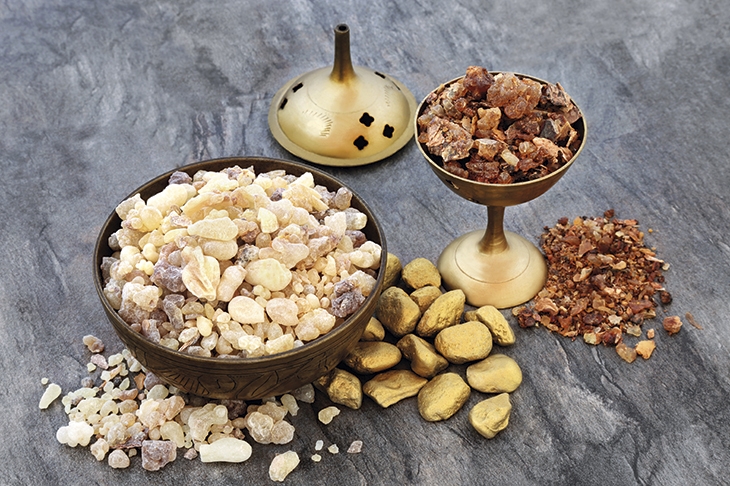‘And when they were come into the house, they saw the young child with Mary his mother, and fell down, and worshipped him: and when they had opened their treasures, they presented unto him gifts; gold, and frankincense, and myrrh.’ About 15 years ago, a colleague at Cambridge was returning from a visit to Yemen. The British customs officers asked him what he had bought, and he declared that his luggage contained frankincense and myrrh. ‘And gold as well, I suppose!’ came the ironic reply, and he was let through without further ado. Later, he gave me a brown paper bag filled with nuggets of myrrh, which I used to hand round at my lectures when talking about the history of the trade in perfumes and spices, inviting my audience to chew a piece.
It may have done them some good. The label of an upmarket toothpaste will often reveal that it contains myrrh.

Get Britain's best politics newsletters
Register to get The Spectator's insight and opinion straight to your inbox. You can then read two free articles each week.
Already a subscriber? Log in







Comments
Join the debate for just £1 a month
Be part of the conversation with other Spectator readers by getting your first three months for £3.
UNLOCK ACCESS Just £1 a monthAlready a subscriber? Log in